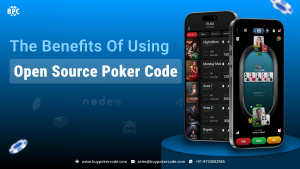How to Choose the Best Poker Source Code for Your Platform?
There is always a thrill factor that comes with launching an online poker platform. It is frank to say that your success hangs in the balance of one decision that is mostly ignored by many people: choosing the perfect poker source code. If this source code is selected incorrectly, you risk many glitches and security breaches, which players won’t appreciate, ultimately leading them to your competitors. On the other hand, you will enjoy a secure, scalable, and glitch-free poker experience that will keep your poker players coming back again and again if it is well chosen.
Yet, with so many choices, from white-label solutions to open-source frameworks to custom-built engines, how do you know what fits your vision? Which is the right poker code licensing model to follow? How sure can you be that the poker software you are selecting is really secure?
Let’s lay it out step by step so that you can choose the best poker source code for your platform with confidence and achieve long-term success.
Why Poker Source Code Matters More Than You Think?
Source code is not just the basis of your platform; it is your whole platform. Regarding gameplay mechanics, real-time synchronization in multiplayer mode, fraud-fighting systems, or user retention and monetization, everything ultimately comes down to how subtly these elements are coded.
This is why selecting the correct code is critical:
- Performance & Scalability: Can handle thousands of players at a time without lag.
- Customization Flexibility: There should be room for adaptation with game rules, UI, and payment methods.
- Security & Compliance: To secure the sensitive information of players and meet the gambling regulations.
- Long-term Cost Efficiency: Avoid expensive rewrites and patchwork fixes later on.
Bad code means poor performance, data leaks, and unhappy customers, which are not the things a gaming operator can afford.
Step 1: Understand Your Platform’s Needs
To start with, it is essential to evaluate the provider of the poker source codes. One must understand their business model, technical requirements, and target audience. You can ask yourself:
- Are you developing a real-money poker platform or a free-play social poker app?
- Does your provider offer Texas Hold ’em, Pot Limit Omaha, 7-Card Stud, or perhaps more than one variant?
- Do you want to support desktop, mobile, or cross-platform game play?
- Do you plan to extend internationally, where there are different state regulations?
It wouldn’t be great to invest in bloated codebases that have too many features you really don’t need or in a limited solution that doesn’t scale up.
Step 2: Review Poker Engine Source Code Options.
There are three primary directions to take regarding this poker engine: building from scratch, using a white-label solution, or utilizing an open-source framework for the application.
Custom Poker Source Code: Hire development resources to build your platform from the ground up.
Pros:
- Features and branding are fully customized
- Full control over security and scalability
- Does not entail a base licensing cost, but will surely require a substantial upfront investment.
Cons:
- Substantial upfront investment
- Longer development timelines
- Requires an experienced technical team
Best suited for established gaming operators with large budgets and long-term vision.
White-Label Poker Software
The vendor provides pre-built source code for poker that one needs to rebrand as their own.
Pros:
- Quick launch to market
- Security for professional gameplays
- Vendor-managed bug-fixing security
Cons:
- Limited brandable
- Licensing charges or sharing revenue continuously
- Changes dependent on vendor
Perfect for startups that require going to the market very fast and do not have a huge amount of technical overhead.
Open-Source Poker Frameworks
These are poker engines that are free of cost or community-driven and can be configured to your wish.
Pros:
- It’s free of any kind of licensing fee.
- Options available for flexible modifications
- The developers’ community is active
Cons:
- Inherent security risks
- Low customer support
- Programming skills required: advanced
Useful for gaming startups with developers or those having some underground tech know-how.
Step 3: Poker Source Code Licensing Comparison
One of the most underestimated parts when choosing a poker source code is appreciating the licensing model. Selecting an inappropriate licensing agreement could easily land one in very costly contracts or even limit a platform’s growth.
Step 4: Set Your Mind on Secure Poker Software Selection
The core of online poker platforms is highly sensitive user data coupled with transactional real money, which makes security paramount. Secure poker software selection ensures that both the interests of the players and the reputation are safeguarded while adhering to regulatory requirements.
Key Security Features to Look For:
- Data Encryption: Full end-to-end SSL encryption is used to secure player details.
- Fraud Detection: Detection of collusion, bots, and chip dumping.
- Secure Payment Gateways: Offer safe deposit and withdrawal facilities.
- DDoS & Anti-Hacking Protection: This secures against server overload attacks.
- Regulatory Compliance: Adheres to GLI, ISO standards, and relevant jurisdictional licenses.
Good poker source code will feature strong security from inception and not be an afterthought.
Step 5: Test Before You Invest
This may include watching the poker source code in action through a live demo or a free trial available through their website. It should be tested for the following:
- No jerks in the gameplay and instant response times
- Mobile compatibility to the core
- Payment processing flows
- Error detection and handling
- Heavy user load performance
That is a check to ensure that the code aligns with what is needed for the vision of your platform and that there will be no surprises at a high cost later on.
Step 6: Review Supplier Reputation and Support
Even with the most innovative poker source code, there will be a necessity for constant updates, maintenance, and customer support. Do some review before appending your signature to any of the following:
- Review the existing client testimonials and case studies on maintenance
- Check out whether the vendor has experience in the respective field of online gaming
- Post-purchase support and update policies
- Regulatory help in different markets
Step 7: Scale for Future
The beginning is always small for any platform, but passenger traffic to poker grows over time. The best poker source code will have the following features:
- Writing poker variants with the core logic not being rewritten
- Go beyond the borders and spread your business internationally through multi-currency support.
- Easiest integration with third-party tools like payment processors, CRM, and analytics
- Add up loads more players—thousands of players per server on the go
- Think long term: without scalable code, your business will not scale either.
Conclusion
Choosing poker source code is the best way to create a competitive advantage since this is more than simply a competitive price but rather the core wrapper of performance, security, licensing, and sustainability that will further dictate player satisfaction and profit for the platform.
With a little bit of planning in the right places, costly mistakes can be saved and the poker platform set for success from a long-term perspective. This is not just a technical selection one can make. It is a difference-making competitive advantage when choosing poker source code.







